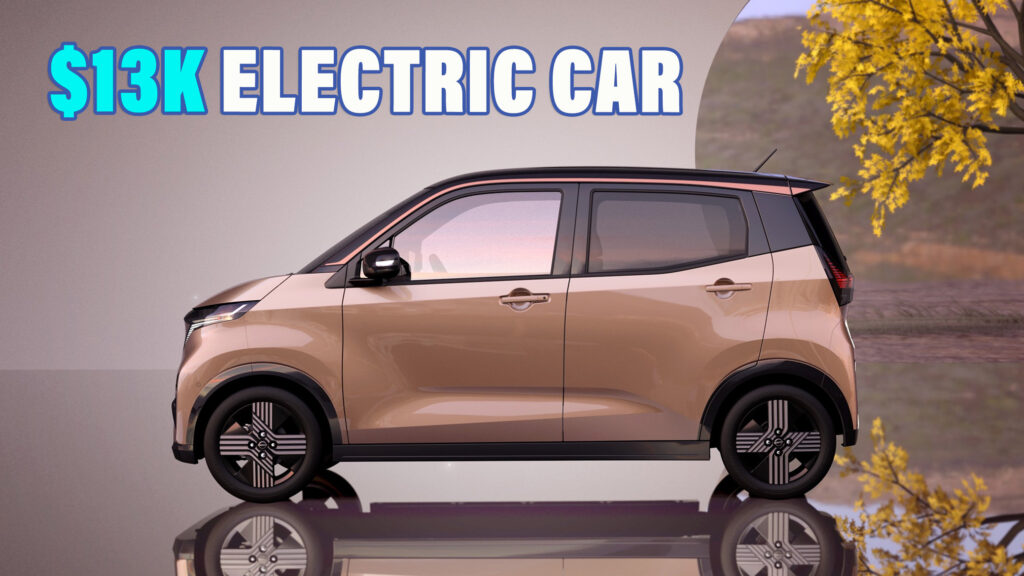Kei-class Nissan Sakura and its Mitsubishi eK X twin account for half of all EVs sold in the country
5 hours ago
 –>
–> 
–>
Tesla’s Model Y SUV continues to dominate the European EV market, but not all buyers around the globe looking for an electric car have jumped on the Tesla trend. In Japan, the most popular EV is a tiny kei minivan-style hatchback that costs a third as much as a Model Y, even after Tesla’s latest price cuts.
Though Japan’s car industry has introduced countless technical advances over the years, and the Nissan Leaf was the first mass-produced electric car of the modern age, Japanese buyers have been much slower to switch to EVs than those in China or Europe. Only 1.5 percent of new cars bought in Japan last year were fully electric. But the 63 hp (47 kW / 64 PS) Nissan Sakura and its Mitsubishi eK X twin are helping drivers make that leap, assisted, no doubt, by an enticing ¥2 million ($13,300) price, Bloomberg reports.
That’s an incredible price for a fully functioning EV and makes even Citroen’s new $21k e-C3 look conspicuously expensive. But buyers definitely have to accept some compromises to drive an EV that costs less than a carbon-styling pack on a supercar. The 3,395 mm (133.7 inches) Sakura tops out at 130 km/h (81 mph), for instance, and has a modest 112-mile (180 km) electric range from its 20 kWh battery. And being built to Japanese kei microcar rules that dictate external dimensions, it’s small, and also pretty ugly because it has flat sides to maximize interior space.
advertisement scroll to continue
Related: Nissan Sakura EV Is An Affordable Electric Kei Car For Japan
But while those traits might not work in some countries, they’re exactly why the Sakura has proved so popular in Japan. Okay, not the ugly bit, but being small makes it perfect for Japan’s narrow roads and crowded cities, and many owners are buying them as second cars for running errands, so don’t even need one-third of the available maximum speed or range. And like ICE-powered kei cars, the Sakura benefits from lower running costs due to various financial breaks related to things like licensing fees.
The bonsai EVs accounted for around half of all EV registrations in Japan last year, and have clocked up over 35,000 sales so far in 2023, Bloomberg says. That success hasn’t gone unnoticed by rival carmakers: Honda, Suzuki, Toyota, and Toyota-owned Daihatsu all have electric kei cars coming in 2024.
Safety regulations would prevent them from being sold in the U.S. in their current form, but do you think there’d be a market for this kind of car in North America if automakers managed to get through homologation and keep the price below $15k?

 <!–
<!– –>
–> 
